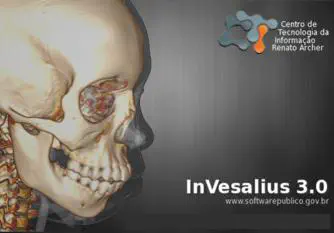InVesalius Navigator

InVesalius Navigator is a free software for viewing and manipulating medical images, and virtual navigation. It has been developed since October 2008 by the Biomagnetism Laboratory of the Ribeirão Preto Faculty of Philosophy, Sciences and Letters of the University of São Paulo, in partnership with the Renato Archer Information Technology Center of the Ministry of Science and Technology. The initial motivation for its creation came from the difficulty faced by research centers and hospitals in acquiring virtual navigation systems, due to the high cost and difficulties in importing.
The functionalities involve the manipulation and editing of medical images from Nuclear Magnetic Resonance tomography, Computed Tomography and Three-Dimensional Scanners. Virtual navigation is performed using spatial tracking equipment, which makes it possible to identify in real time the positioning of a tip in relation to target structures, represented in the viewing windows, facilitating, for example, the planning of neurosurgeries.
Currently, the InVesalius Navigator has been used in transcranial magnetic stimulation (TMS) procedures, to position the stimulation coil over the cortex to be stimulated, and to quantify the relative orientation of the instrument to the reference planes of the subject’s head. The software is also used to acquire the spatial coordinates of stimulated points in a motor mapping experiment with TMS.
For more information on downloading InVesalius, please visit the CTI website or contact us through our Contact page.